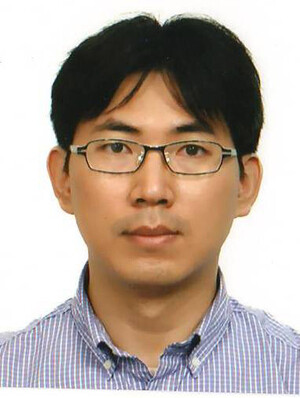hankyoreh
Links to other country sites 다른 나라 사이트 링크
[Reporter’s column] S. Korea forfeiting moral high ground in Japan dispute

By Gil Yun-hyung, Tokyo correspondent
When I heard the news about the Aug. 26 debate organized by the Ministry of Education, which is moving to designate a single Korean history textbook, I sighed and uttered a profanity in spite of myself. I had a disturbing premonition that this policy - proposed by a government that is even worse than that of Japanese Prime Minister Shinzo Abe - would fundamentally damage South Korea’s national interests in its diplomatic relations with Japan.
The most bitter struggle between Japan and South Korea - whose current relations are worse than ever before - is the question of history, epitomized by the comfort women issue. If that is so, why has the comfort women issue not yet been resolved? Among a number of possible reasons, the thing that we must note is that descriptions of the comfort women issue have been removed from many Japanese history textbooks.
According to figures by Children and Textbooks Network 21, all seven of the middle school textbooks published in Japan in 1997 contained information about the comfort women. This fell to two textbooks in 2002 and just one in 2006. After coming to power in Dec. 2012, the Abe administration has strengthened the Teaching Guide for the Course of Study and the guidelines for writing textbooks, in a blatant attempt to exert government control over textbooks. The long-standing desire of the Japanese right wing to eliminate current history textbooks that they think are contaminated by a masochistic view of history is becoming a reality.
But there is one policy that even the Abe administration has not dared to try, and that is nationalizing the history textbook system, as the Park Geun-hye government is currently considering.
During imperial times, the Japanese government directly produced all of the textbooks that were used in elementary school, which was the mandatory level of schooling. By teaching all of the children in the country with the same textbook, the government forged dutiful subjects of the empire, who were then sent to the battlefield to lay down their lives for the emperor.
In 1948, after its defeat in World War II, Japan abolished the existing state-run textbook system, in keeping with its sense that it was not right for the state to use textbooks to control the hearts of the people. In its place, Japan set up an evaluation system.
Even after this, the state continued its persistent efforts to use the evaluation system to control textbooks, but through the Ienaga trials, which began in 1962 and lasted for 32 years, a social consensus formed that it was inappropriate for the state to use textbooks to shape public attitudes. Saburo Ienaga was a Japanese historian who wrote a textbook that the Japanese government censored for its inclusion of Japanese imperial war crimes. Ultimately, even the Abe administration has had no choice but to use indirect means to strengthen control of textbooks inside the framework of the evaluation system.
The South Korean government and major media outlets have repeatedly criticized the Abe administration’s education policies and the rightward shift of textbooks in Japan for inculcating students with the government’s positions instead of teaching them society’s wide variety of opinions. But now, with virtually no schools adopting the atrocious Kyohak Publishing history textbooks, flawed textbooks written by far-right historians, the South Korean government is playing the nationalization card, vowing to directly control the material that students are taught. It is trying to pull off a feat bolder than anything the Abe administration has done.
Even if one has been wronged, persuading one’s opponent is impossible without setting a stronger moral example. In the future, how will Japan respond to the criticism of the South Korean government? How will the international community view the historical dispute between the two countries, when South Korea returns to state-produced textbooks while Japan does not?
Please direct questions or comments to [english@hani.co.kr]

Editorial・opinion
![[Editorial] Perilous stakes of Trump’s rhetoric around US troop pullout from Korea [Editorial] Perilous stakes of Trump’s rhetoric around US troop pullout from Korea](https://flexible.img.hani.co.kr/flexible/normal/500/300/imgdb/original/2024/0509/221715238827911.jpg) [Editorial] Perilous stakes of Trump’s rhetoric around US troop pullout from Korea
[Editorial] Perilous stakes of Trump’s rhetoric around US troop pullout from Korea![[Guest essay] Preventing Korean Peninsula from becoming front line of new cold war [Guest essay] Preventing Korean Peninsula from becoming front line of new cold war](https://flexible.img.hani.co.kr/flexible/normal/500/300/imgdb/original/2024/0507/7217150679227807.jpg) [Guest essay] Preventing Korean Peninsula from becoming front line of new cold war
[Guest essay] Preventing Korean Peninsula from becoming front line of new cold war- [Column] The state is back — but is it in business?
- [Column] Life on our Trisolaris
- [Editorial] Penalties for airing allegations against Korea’s first lady endanger free press
- [Editorial] Yoon must halt procurement of SM-3 interceptor missiles
- [Guest essay] Maybe Korea’s rapid population decline is an opportunity, not a crisis
- [Column] Can Yoon steer diplomacy with Russia, China back on track?
- [Column] Season 2 of special prosecutor probe may be coming to Korea soon
- [Column] Park Geun-hye déjà vu in Yoon Suk-yeol
Most viewed articles
- 1Korea likely to shave off 1 trillion won from Indonesia’s KF-21 contribution price tag
- 2Nuclear South Korea? The hidden implication of hints at US troop withdrawal
- 3[Editorial] Perilous stakes of Trump’s rhetoric around US troop pullout from Korea
- 4With Naver’s inside director at Line gone, buyout negotiations appear to be well underway
- 5In Yoon’s Korea, a government ‘of, by and for prosecutors,’ says civic group
- 6[Column] ‘Choson’: Is it time we start referring to N. Korea in its own terms?
- 7‘Free Palestine!’: Anti-war protest wave comes to Korean campuses
- 8How many more children like Hind Rajab must die by Israel’s hand?
- 9Overseeing ‘super-large’ rocket drill, Kim Jong-un calls for bolstered war deterrence
- 10[Photo] ‘End the genocide in Gaza’: Students in Korea join global anti-war protest wave